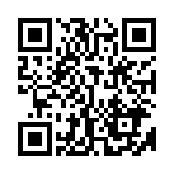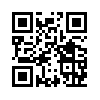The Science of Psychology
6 Key Takeaways and Exercises
Key Takeaways
- Knowledge is acquired in many ways including intuition, authority, rationalism, empiricism, and the scientific method
- Science is a general way of understanding the natural world. Its three fundamental features are systematic empiricism, empirical questions, and public knowledge.
- Psychology is a science because it takes the scientific approach to understanding human behavior.
- Pseudoscience refers to beliefs and activities that are claimed to be scientific but lack one or more of the three features of science. It is important to distinguish the scientific approach to understanding human behavior from the many pseudoscientific approaches.
- Psychologists conduct research in order to describe basic phenomenon, to make predictions about future behaviors, and to explain the causes of behavior.
- Basic research is conducted to learn about human behavior for its own sake, and applied research is conducted to solve some practical problem. Both are valuable, and the distinction between the two is not always clear-cut.
- People’s intuitions about human behavior, also known as folk psychology, often turn out to be wrong. This is one primary reason that psychology relies on science rather than common sense.
- Researchers in psychology cultivate certain critical-thinking attitudes. One is skepticism. They search for evidence and consider alternatives before accepting a claim about human behavior as true. Another is tolerance for uncertainty. They withhold judgment about whether a claim is true or not when there is insufficient evidence to decide.
- Scientific research in psychology is conducted mainly by people with doctoral degrees in psychology and related fields, most of whom are college and university faculty members. They do so for professional and for personal reasons, as well as to contribute to scientific knowledge about human behavior. Most psychologists are experimental psychologists and they conduct research.
- The clinical practice of psychology—the diagnosis and treatment of psychological problems—is one important application of the scientific discipline of psychology.
- Scientific research is relevant to clinical practice because it provides detailed and accurate knowledge about psychological problems and establishes whether treatments are effective.
Exercises
- Practice: Consider three things you know and determine how you acquired that knowledge (authority, intuition, rationalism, empiricism, the scientific method).
- Practice: Try to generate different research questions to describe, predict, and explain a phenomenon that interests you.
- Practice: Based on your own experience or on things you have already learned about psychology, list three basic research questions and three applied research questions of interest to you.
- Practice: List three empirical questions about human behavior. List three nonempirical questions about human behavior.
- Practice: For each of the following intuitive beliefs about human behavior, list three reasons that it might be true and three reasons that it might not be true:
- You cannot truly love another person unless you love yourself.
- People who receive “crisis counseling” immediately after experiencing a traumatic event are better able to cope with that trauma in the long term.
- Studying is most effective when it is always done in the same location.
- Watch the following video, in which psychologist Scott Lilienfeld talks about confirmation bias, tunnel vision, and using evidence to evaluate the world around us:
-
- Reading in print? Go to https://youtu.be/gKVe0-pWjA0 or scan this QR code with your phone:

- Reading in print? Go to https://youtu.be/gKVe0-pWjA0 or scan this QR code with your phone:
- Discussion: Consider the following psychological claim. “People’s choice of spouse is strongly influenced by their perception of their own parents. Some choose a spouse who is similar in some way to one of their parents. Others choose a spouse who is different from one of their parents.” Is this claim falsifiable? Why or why not?
- Discussion: People sometimes suggest that psychology cannot be a science because either (a) human behavior cannot be predicted with perfect accuracy or (b) much of its subject matter (e.g., thoughts and feelings) cannot be observed directly. Do you agree or disagree with each of these ideas? Why?
- Watch the following video by PHD Comics for an overview of open access publishing and why it matters:
- Reading in print? Go to https://youtu.be/L5rVH1KGBCY or scan this QR code with your phone:

- Reading in print? Go to https://youtu.be/L5rVH1KGBCY or scan this QR code with your phone:
- Discussion: Some clinicians argue that what they do is an “art form” based on intuition and personal experience and therefore cannot be evaluated scientifically. Write a paragraph about how satisfied you would be with such a clinician and why from each of three perspectives:
- a potential client of the clinician
- a judge who must decide whether to allow the clinician to testify as an expert witness in a child abuse case
- an insurance company representative who must decide whether to reimburse the clinician for their services
- Practice: Create a short list of questions that a client could ask a clinician to determine whether they pay sufficient attention to scientific research.
Video Attributions
- ESC 2017 – Scott Lilienfeld: “Tunnel Vision: Confirmation Bias” © ESC European Skeptics Congress is licensed under a CC BY (Attribution) license

